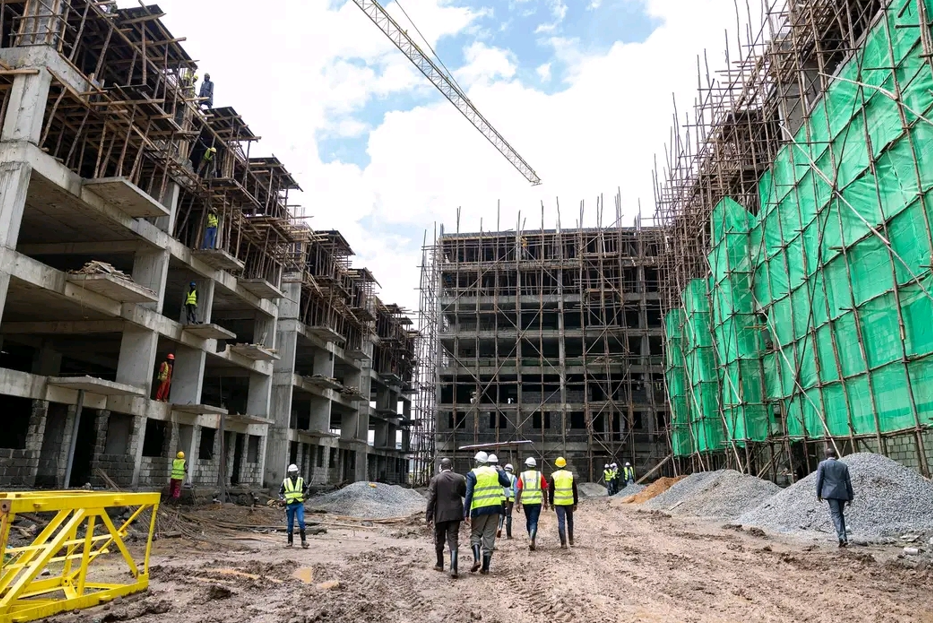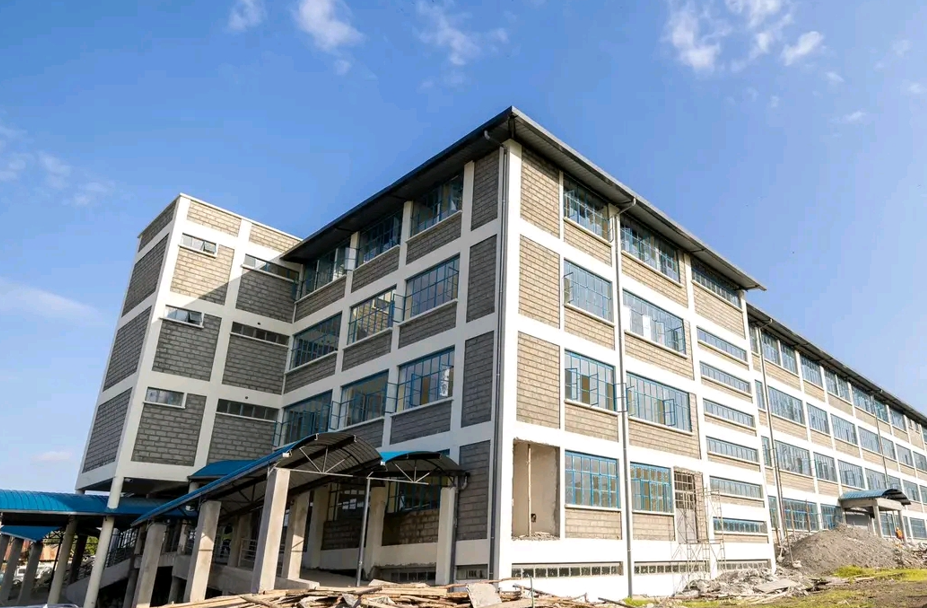At the heart of Africa’s biggest slums, Kibera, sits a housing project that could change how the slum area is viewed by the world. The Kibera Soweto B Social Housing, which has 4,054 units set to be completed in January 2026, will host at least 4,054 families.
The project is among several ongoing projects in the country at different levels of execution, with a total of 112,405 units in the pipeline. Business Today did a spot check on the Kibera project to ascertain the level of completion and the impact it has had on the community around.
At the entrance of the project, we meet Maureen Adisa, a community chair lady who narrates the sorry state of security that was there before the housing project commenced. Before the project, she says, cases of theft, mugging, rape and sometimes killings were the order of the day.
As she puts it, slowly but surely, the project has not only transformed the area once dominated by slum houses but brought about security for the community around. “When we had slum houses on this same land, we had so many cases of fire, rape and a lot of insecurity cases. However, with such a housing project the security status has greatly improved. These houses are improving the lives of so many people,” Adisa tells Business Today.
Kibera Social Housing Project which comprises 18 blocks and will also cater for supporting internal infrastructure and amenities.
According to David Musili, the project has transformed the lives of many youths in the slums who used to stay idle due to lack of jobs and sometimes got engaged in crime. “We used to stay idle most of the time. But such a project has brought about employment. We get every little job that comes up here which means we do not stay idle, and we can fend for ourselves,” Musili says.
Musili also slams politicians and a section of Kenyans who have been opposing the Affordable Housing Projects, saying that so many Kenyans are benefiting from the project.
“We should separate politics from the projects. This project has really helped us. Those claiming that we will not get houses here are lying. It’s the people who vacated this place for the project that will be given priority in the allocation of the houses. It will be a great change to our lives,” Musili adds.
According to the State Department for Housing and Urban Development, 300 people are working daily) at the site with about 20 of those workers being women while 200 are youth.
“We anticipate more Kenyans will benefit from this project through its entire value chain, including artisans, build industry professionals, suppliers of materials, logistics providers, MSMEs and Jua Kali Associations, local small businesses and traders, home owners among others,” the department says.

Game changer for Kibera dwellers
Maureen also lauds the project as a game changer which has improved the living standards for slum dwellers, who used to stay in congested rooms with all their families.
“If I get a one-bedroom or a two-bedroom, I will not spend the night in the same room with the kids or family members who visit. We used to stay in one room which served us as the bedroom, kitchen and even the sitting room. The project will bring some privacy,” Adisa says.
Just like Musili, Adisa expresses her confidence that she will be among the 4,000 families that vacated the land for the project that will get houses in the project.
“4,000 people vacated this land for the project. We expect that the 4,000 will be given priority during the allocation of the houses. We have already been enumerated. I want to encourage all the residents to save for the houses since they are not free houses. You must save for it,” she adds.
One roomed unit is selling for Ksh600,000, one bedroomed at Ksh1 million while the proposed selling price for a two-bedroom is Ksh1.3 million.
President William Ruto has already commissioned 17,850 units in other slum areas such as Mukuru, Rongai, and Kibera to ease the housing burden affecting low-income earners.
The construction of another 28,942 units is ongoing countrywide.
The Affordable Housing Programme targets the over 6.5 million Kenyans living in slums and informal settlements.
Read > Decline in Housing Prices Stimulates a Rise in Demand
> From Superior Homes, a Sh14B Master-Planned Housing Project













Leave a comment